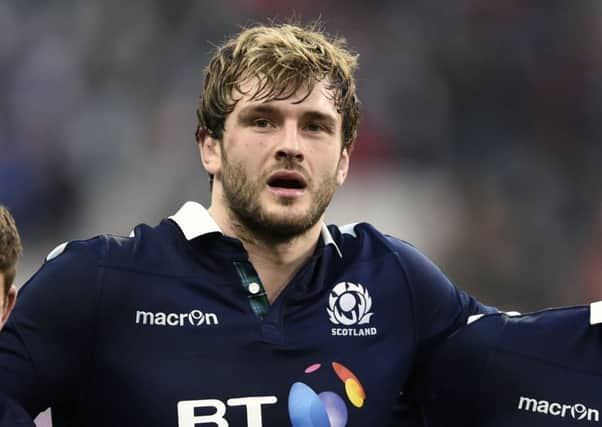Allan Massie: Six Nations should heed cricket’s cautionary tale on TV rights


It wasn’t, however, only Scotland and Italy who objected. Other Unions apparently did so too, and did so for good reasons. The first, and most obvious, is that the Six Nations, unlike the Southern Hemisphere’s Rugby Championship, is very successful. It is enjoyed and valued by fans, many of whom regard not only their home matches but their trips to away games as among the high-spots of their year. Then, while rugby’s administrators may be impatient with tradition, this isn’t the case with supporters, most of whom are, I would guess, conservatively-minded where rugby is concerned, and think that no good reason to change is a good reason to keep things as they are.
However, having seen off this threat, another looms. This is the offer from a private equity, or private investment, company, CVC Capital, to buy a 30 per cent holding in the Six Nations, for which they are apparently prepared to pay £500 million. Some might say that, though £500m is quite a lot of money, it doesn’t seem that much when you look at the transfer dealings of the top English, Spanish, French and Italian football clubs; it might buy four or five star players.
Advertisement
Hide AdAdvertisement
Hide AdStill, that’s by the way. The point is that whatever such a company puts into the game, it will look to take more out. Rich owners of rugby clubs in England and France have spent a lot of money without any return other than the pleasure and gratification of owning a rugby club, or being chief shareholders in it. But a company such as CVC Capital is in a different position. It exists to make money for its investors. It is not a philanthropic organisation. Admittedly, it wouldn’t have control of the Six Nations, but it would certainly have influence and make demands which it would expect to be met.
One suggestion, already aired, is that the Six Nations might more profitably be removed from free-on-air television – that is, from the BBC, ITV and the French and Italian national channels, and be sold, more profitably, to a subscription broadcaster. There are more such broadcasters every year and competition between them is so fierce that one at least would surely be prepared to pay above the odds. So what’s wrong with that? More money – everyone should be happy.
Well, anyone who thinks so should look at what has happened in cricket. After the very successful 2005 Ashes series, which generated huge popular interest, the ECB took the contract for Test matches in England away from Channel 4, which had covered that series excellently, and sold the rights, more profitably, to Sky. What was the result? Viewing figures plummeted. General interest in cricket, even Test Match cricket, declined. This should be a warning to the Six Nations committee.
Meanwhile, England and France have announced their first training squads for the World Cup. The English one doesn’t bear a close resemblance to what Eddie Jones’s final selection may be, for players from Saracens and Exeter who took part in the Premiership play-off final have been given a wee rest. All the same, it looks like the end of the line for Dylan Hartley, Chris Robshaw and Danny Care, all England regulars for several years. Likewise, just as Gregor Townsend has omitted Richie Gray from his training squad, so French coach Jacques Brunel has found no place for Mathieu Bastareaud. Morgan Parra is another absentee, but he at least is injured and may indeed not be fit to play for months. The prospect of injuries means of course that the eventual World Cup squads are all but certain to be rather different from any training ones now announced. With weeks of intensive training and then a series of either three or four so-called warm-up internationals, it would be amazing if a number of players now happily beginning their preparation for the World Cup don’t even get as far as the departure lounge of the airport.
Still, with this reservation, Brunel’s squad looks good, agreeably free of the daft or eccentric flights of fancy that sometimes characterise French selections. There’s a very nice mix of youth and experience. France, of course, had a very mixed Six Nations, with a particularly disastrous day at Twickenham. Nevertheless, there were occasional signs that at last they were beginning to get things right and some very fine young players have established themselves.
England, of course, are in their World Cup pool – a chance to avenge that humiliation – not something that may be beyond them.